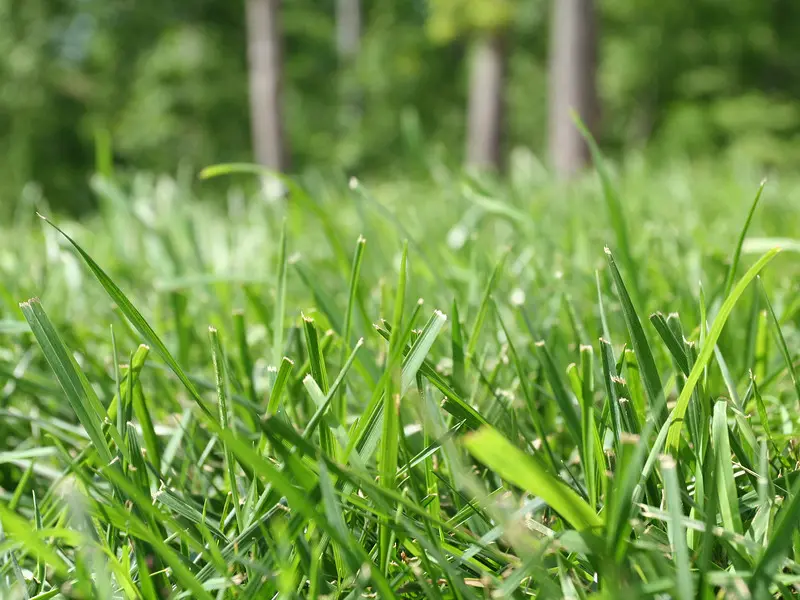
Everybody’s lawn is slightly different. Some people have more shade than others, many people have different types or qualities of soil on their property. That’s why finding the right type of grass for your lawn is so important. Some grasses are better able to handle certain conditions than other types of grass. Bermuda grass (Cynodon dactylon) is commonly found on lawns throughout the southern part of the US. Is it the right grass for your lawn? Let’s take a look.
What is It?
Contrary to its name, Bermuda grass doesn’t actually come from Bermuda. Instead, it is native to Africa, as the Alabama Cooperative Extension System points out. Depending on where you live and people’s opinions about the grass, it goes by a few names, among them couchgrass, wiregrass and devilgrass. The grass tends to grow and spread quickly, as it spreads by both rhizomes, or underground stems, and by stolons, above ground stems. The grass grows quickly enough that mowing or trimming it once a week is usually recommended.
Although some people appreciate the grass’s tough nature and ability to spread easily, those same features make it an undesirable weed in other people’s eyes. If you want to grow the grass on your lawn, its growth pattern and tenacity work in your favor. But if you’re trying to get rid of the grass, the fact that it spreads so easily can make removal a challenge.
Benefits of It
Why choose Bermuda grass over other varieties? The grass offers several benefits, particularly for people living in warmer, drier areas.
1. It’s Drought Tolerant
Although the grass grows best when there is a fair amount of rain, according to Texas A&M Agrilife Extension, it also has the ability to withstand and survive drought conditions. Even if its rhizomes lose about 50 percent of their weight during an extremely dry period, they are able to bounce back once moisture returns. The grass also has the habit of producing seed heads, which allow it to reproduce (except for Hybrid Bermudagrass, the seed is not viable), when it is subjected to dry conditions.
It’s worth mentioning that although the grass will survive drought and dry conditions, it won’t necessarily look so good during it. But you’ll be able to rest easy in the knowledge that the grass will restore itself once the dry spell is over.
2. It’s Durable
Another benefit of growing the grass is that it’s a fairly durable variety. The grass is often used on areas that see a lot foot traffic and wear, such as golf courses and sports fields. It’s able to bounce back after being tread on and can tolerate a degree of compaction.
3. It Is Fairly Pest Resistant
When the conditions are right, Cynodon dactylon is able to withstand attacks from a variety of pests. According to Texas A&M, it can tolerate low population levels of insects such as mealybug, cutworm, armyworm and mites when growing conditions are ideal. When insect population levels are high or the grass is growing in stressful conditions, you might consider controlling pests with either a chemical or biological method.
Should You Grow It?
Is Bermuda grass the right one for your lawn? If you’re in a warm area, if your lawn gets plenty of sun and if you have the time to regularly mow the lawn or can hire someone to do it, Cynodon dactylon can be the right pick for you. But, if much of your lawn is in the shade, there are other grass options that are a better pick for you.
Inspect-All Pest Services appreciates grass that can be pest-resistant and hope that you do too!
Benefits of Growing Bermuda Grass Pest Control in Atlanta, GA
Serving Lawrenceville, GA
Cobb County | Gwinnett County Marietta | Austell | Smyrna | Acworth | Douglasville | Powder Springs | Stockbridge | McDonough | Conyers
Greensboro | Athens | Jonesboro | Norcross | Stone Mountain | Decatur | Kennesaw | Fayetteville | Monroe | Loganville
Home » Benefits of Growing Bermuda Grass
